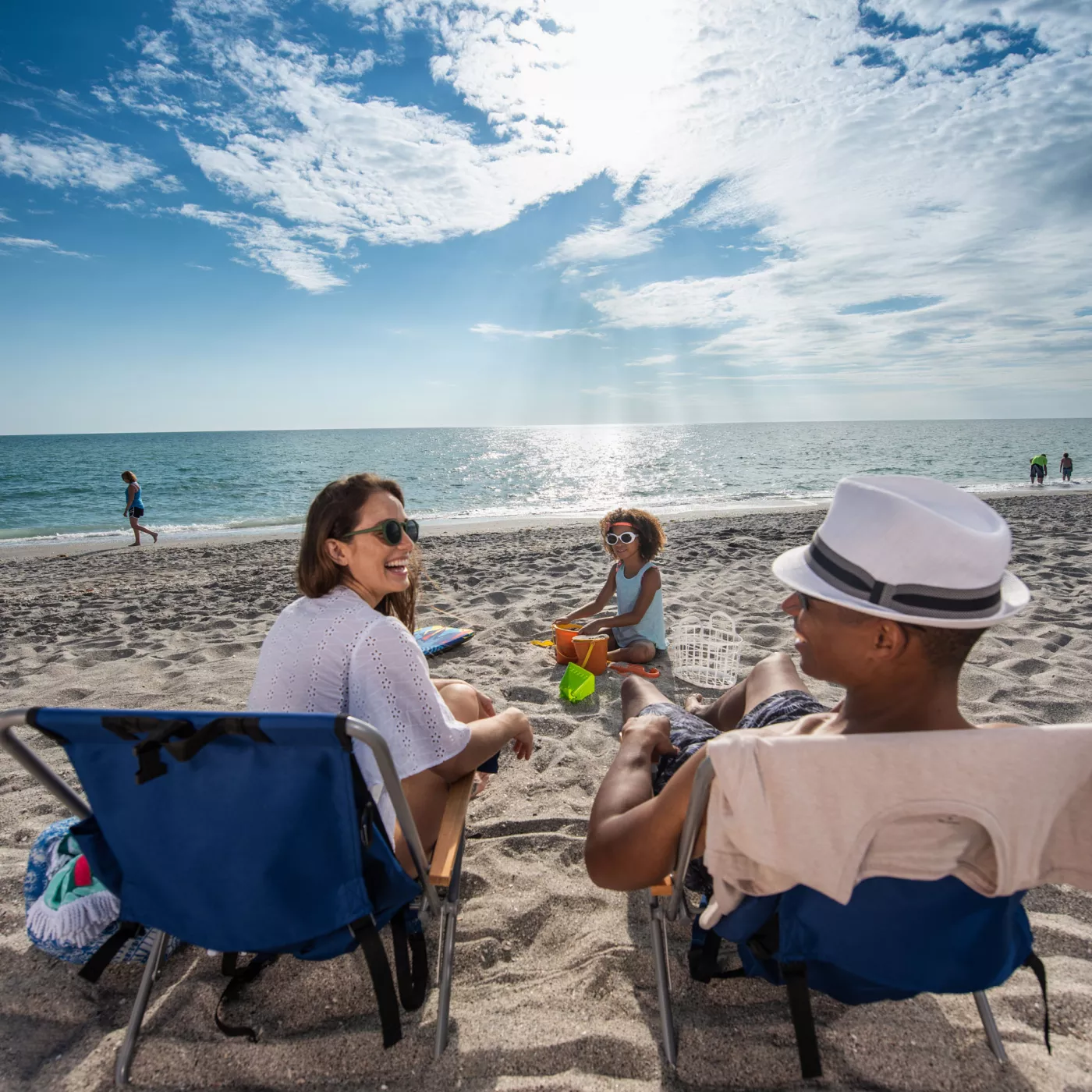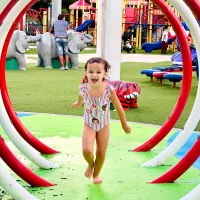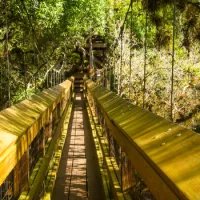The Florida House is all about Sustainability
Learn what’s happening at this gem in our community
Learn what’s happening at this gem in our community
Our community boasts many amazing businesses, non-profits and organizations. But there’s one that’s a bit unique, off the beaten path, chock-full of learning opportunities, and always a fun place to visit. So, what is it?!?
It’s The Florida House Institute (FHI), a non-profit that has been touting the benefits of sustainable living and green building practices for about 25 years. It’s located on South Beneva Road in Sarasota, tucked between Suncoast County Technical Institute and Wilkinson Elementary School. The property houses a beautiful building, purposefully-designed landscaping, and tons of hands-on learning experiences. This place is special, and it’s not just because it was the first green building open to the public. It’s a place where folks who are interested in sustainable living practices, like clean air/land/water, healthy farming, and humane food sourcing can learn about current trends, build their toolkits, get involved and fulfill their passions.
One of the best things about FHI is the person who recently joined the organization as its Executive Director — Michele Mician. Her passion and excitement for all-things-sustainable is evident in all she does, and she certainly has a long list of opportunities in which to influence, because topics are endless — edible forests, permaculture principles, recycling, water conservation, natural landscape design, green building materials, local food sources, pollinator programs, energy efficient practices, and more. If you’ve never heard of FHI, this is a great time to check it out because her team and her dedicated Board have lots of initiatives underway and they highly encourage community participation.
When The Florida House started, its mission was to educate community members and builders about sustainable building materials and practices, i.e., energy efficient windows, solar panels, grey water, native landscape design (formerly called xeriscape), etc. But when development slowed in the early 1990s, these topics weren’t on the forefront of everyone’s minds. So they re-tooled and expanded offerings to include issues pertaining to sustainable living practices, while partnering with national organizations like US Green Building Coalition and Florida Green Building to fund large initiatives, including those that engage our younger population. To that end, they have received grants for programs like the one with Sarasota County Schools to educate 5th graders as part of Science Technology Engineering and Math (STEM) efforts, where kids attend fun, hands-on learning sessions about kinetic energy, edible energy, plumbing and construction tools that support sustainable practices. Ultimately, they’re hoping to expand the program by following these students through Florida colleges, keeping them engaged, and even tapping into them for mentoring
opportunities with younger students. But that’s just one of the ideas Michele and her team have up their sleeves.
One of their signature initiatives is a partnership with MonarchWatch.org. In doing so, FHI has become a Monarch Waystation, providing an environment filled with resources for Monarch butterflies (i.e., pollinators) to gather food (i.e., milkweed, nectar from flowers) and water needed to successfully complete their migration and perpetuate their species. FHI encourages residents to become part of their effort to track as many gardens as possible in their “Million Garden” mission, creating habitats that support pollinators in our southwest Florida corridor. So, if you’ve ever dreamed of becoming a ‘citizen scientist,’ this is your chance! The pollinator garden at FHI also hosts 8 beautifully decorated bee hives from Sarasota Honey Company — the bees love all the native plants, flowers and trees available to them in this special garden.
FHI also houses several vegetable and fruit tree gardens, tended to by dedicated volunteers. As you walk around you’ll learn about native plant habitats, see the free range chickens, learn about permaculture principles, see a ‘food forest’ in action, check out solar practices, see bat boxes, and more. Some of the produce harvested on site is even sold at the Saturday Central Sarasota Farmers Market (October through May) alongside local vendors who sell hydroponic vegetables and locally sourced products. Gardeners will be excited to know that FHI is even working on a seed bank where folks can pick up seeds and/or share their own (rumor has it that Sarasota Architectural Salvage is building the display).
Check out the calendar for live music, farm to table dinners, cocktail receptions, hands-on learning experiences for kids, farmers markets, and more. And if you have a passion for sustainable living practices and want to get involved, FHI welcomes volunteers for garden maintenance, to staff the gift shop and reception desk, and to provide in-kind donations of organic plants.
Bring your kids and grandkids to this special place. . .I guarantee you’ll learn something new AND have fun!
###
Nicole Coudal is a home chef and food writer based in southwest Florida, where she fishes and cooks using local ingredients. When not on the water, she visits farms, farmer’s markets, and other food-related venues to highlight what’s in-season and to create tasty recipes. Read more at www.MyDeliciousBlog.com.

![Boat parking at The Crow’s Nest in Venice [Photo: Lauren Jackson]](/sites/default/files/styles/popular_stories_teaser/public/2023-import/The-Crow%2527s-Nest-cropped__OPT.jpg.webp?itok=ycs37M-O)





